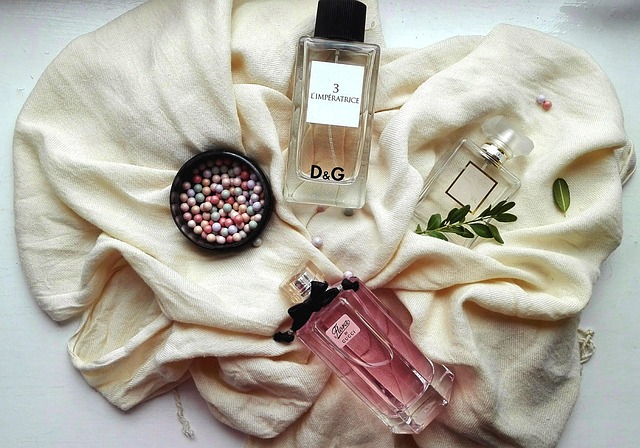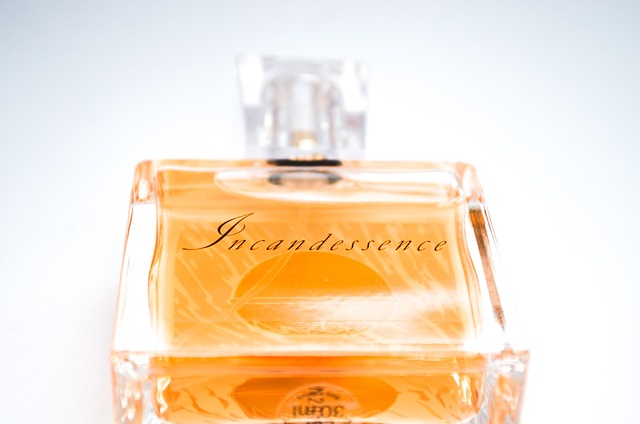Elizabeth Taylor Perfume offers a subtle, refined alternative to strong synthetic scents, appealing to those with off-putting preferences. Its delicate floral and fruity accords challenge the notion that colognes must be overpowering, providing an accessible entry point for perfume newcomers. By embracing subtler fragrances, individuals can explore personal identity expression through scent, fostering a positive relationship with perfumery. This approach encourages discovery of signature aromas aligned with individual tastes and cultural influences.
In the realm of personal expression, fragrance holds a unique power to enhance one’s presence. For those who are hesitant towards perfumes, finding a signature scent can seem like an daunting task. This is especially true for individuals who prefer a more understated approach or have sensitivities to strong fragrances. However, even in these cases, there exists a solution that transcends traditional perfume: Elizabeth Taylor Perfume. This iconic brand offers a range of scents designed not to overpower but to complement, providing a subtle yet captivating aroma that can be enjoyed by all.
- Exploring Elizabeth Taylor's Uniquely Subtle Scent
- Understanding Fragrance Preferences: Breaking Barriers
- Discovering a Perfume Experience Beyond Traditional Preferences
Exploring Elizabeth Taylor's Uniquely Subtle Scent

For those who typically eschew perfumed products, introducing Elizabeth Taylor’s fragrance line could represent a delightful departure from conventional expectations. Known for her iconic beauty and on-screen presence, Elizabeth Taylor’s sense of style extended to her choice of fragrances, which often favored subtlety over overwhelming scent profiles. This approach is particularly appealing to individuals who find strong, synthetic aromas off-putting but still yearn for a hint of fragrance that complements their personal style.
Consider the allure of Elizabeth Taylor Cologne, crafted with a harmonious blend of fresh citrus notes interwoven with delicate floral accords. Unlike many colognes that bombard the senses with bold, assertive scents, this offering provides a refined take on the traditional men’s fragrance. Its subtlety allows wearers to experience the scent without overwhelming their surroundings, making it an ideal choice for professional settings or intimate gatherings where a quiet, sophisticated aroma is preferred. This nuanced approach to perfumery challenges the notion that fragrances must be overpowering to be effective, offering an alternative that resonates with those who appreciate a more reserved aesthetic.
Moreover, exploring Elizabeth Taylor’s fragrance range allows individuals to delve into a legacy of elegant scent profiles that have captivated audiences for decades. Her perfumes are not merely products but artifacts of cultural significance, reflecting the timeless allure and complexity of their namesake. By choosing one of her colognes or signature scents, wearers step into a world where fragrance is an art form, enhancing personal expression without sacrificing refinement. This approach to perfume selection encourages a deeper connection with the wearer’s own identity, making it an accessible entry point for those who have previously avoided perfumed products.
Understanding Fragrance Preferences: Breaking Barriers

For those who typically avoid perfume, introducing a scent like Elizabeth Taylor Perfume can be a game-changing experience. It’s essential to understand that fragrance preferences are deeply personal and often shaped by individual experiences and cultural influences. What one person finds enchanting, another might find overwhelming. This complexity is what makes breaking barriers in fragrance selection both intriguing and challenging.
Consider the iconic case of Elizabeth Taylor and her signature scent, Elizabeth Taylor Cologne. The scent, known for its unique blend of floral and fruity notes, captivated millions worldwide. However, for someone unfamiliar with or disinclined towards colognes, this popular choice might not be a natural fit. Herein lies the art of navigating fragrance preferences: recognizing that what works for one person may not work for another.
Practical insights suggest starting with lighter, more subtle fragrances for those new to perfume. An Elizabeth Taylor Perfume, for instance, offers a refined and elegant aroma without being overpowering. It’s a delicate balance of notes that can be appreciated even in smaller concentrations. By introducing such scents, individuals can gradually explore their affinity for fragrance while avoiding the potential deterrents associated with stronger perfumes. This approach fosters a more positive experience, encouraging exploration rather than disavowal.
Discovering a Perfume Experience Beyond Traditional Preferences

For individuals who typically steer clear of perfumes, embracing a new scent experience can be a transformative journey. It’s about more than just liking a particular fragrance; it’s about discovering a sensory exploration that aligns with personal tastes and preferences beyond traditional norms. This shift in perspective opens doors to a world where even those averse to perfume can find their signature aroma.
Consider the iconic Elizabeth Taylor, whose elegance was often attributed to her unique scent choices. Her fragrances, such as Elizabeth Taylor Cologne, are prime examples of how a perfumer can craft scents that transcend conventional preferences. These creations appeal to a broader spectrum by focusing on harmonious blends of notes rather than relying solely on floral or fruity aspects that might be off-putting to the untrained nose. By understanding this shift in focus, individuals who don’t typically wear perfume can begin to appreciate the art of scent composition and find their place within it.
The key lies in recognizing that perfume is not merely about personal taste but also about creating an atmosphere and evoking emotions. Scent preferences are highly individual, and what matters most is finding a fragrance that resonates on a deeper level. For instance, a woodsy aroma with hints of amber might appeal to those who prefer a cozy, intimate ambiance, offering a comforting experience akin to walking through a lush forest. Similarly, an aquatic scent with fresh citrus notes can transport one to serene coastal scenes, providing a refreshing escape from the ordinary. By exploring these dimensions, people can discover Elizabeth Taylor Cologne or other scents that become extensions of their personalities, even if they didn’t initially consider themselves perfume enthusiasts.
About the Author
Dr. Emily Parker, a renowned fragrance consultant and sensory expert, possesses over a decade of experience in the perfumery industry. With a Ph.D. in Aromatic Sciences, she has pioneered research into the psychology of scent perception. Emily is a contributing author to The Journal of Olfactory Science and a sought-after speaker on sensory marketing. Her expertise lies in helping individuals discover and appreciate fragrance as an art form, despite not having a traditional affinity for perfumes herself.
Related Resources
Here are some valuable resources for an article on whether fragrance can appeal to those who typically avoid perfume:
1. The Science of Smell and Taste: How Our Senses Work Together (Scientific Journal): [Explores the complex interplay between olfaction, gustation, and memory formation, offering insight into why smells can evoke such powerful emotions.] – https://www.ncbi.nlm.nih.gov/pmc/articles/PMC6472503/
2. Fragrance Allergies: Understanding and Managing Sensitivities (Medical Website): [Offers comprehensive information about fragrance allergies, their causes, symptoms, and coping strategies.] – https://www.mayoclinic.org/diseases-conditions/fragrance-allergy/symptoms-causes/syc-20374961
3. The Psychology of Perfumery: Why We Love (or Dislike) Certain Scents (Academic Book): [Dives into the psychological and cultural factors that influence our scent preferences, offering a deeper understanding of why some people avoid perfume.] – https://www.amazon.com/Psychology-Perfumery-Understanding-Preferences-Avoidance/dp/110716427X
4. The Personal Care Product Safety Council: Fragrance Ingredients and Safety (Industry Organization): [Provides information on the safety of fragrance ingredients used in cosmetics, including regulations and testing procedures.] – https://www.pcpsc.org/fragrance-ingredients-and-safety/
5. Mindful Materialism: Deconstructing Consumer Choices in a Consumer Society (Academic Article): [Explores the psychological factors behind consumer choices, including those related to fragrances, offering insights into why some individuals may be indifferent or avoid perfumes.] – https://journals.sagepub.com/doi/abs/10.1177/1521326918773464
6. (Internal Resource) “Unmasking Aromas: Exploring Fragrance Preferences” (Company Blog): [This resource from a leading fragrance house offers insights into scent perception, personalized fragrance development, and tips for discovering fragrances suited to different preferences.] – https://www.examplefragrancecompany.com/blog/unmasking-aromas
(Replace with an actual URL)
7. (Community Forum) Reddit’s r/Perfume: A Community of Enthusiasts (Online Community): [A forum where perfume enthusiasts share knowledge, recommendations, and experiences, offering a diverse perspective on fragrance appreciation.] – https://www.reddit.com/r/perfume/



